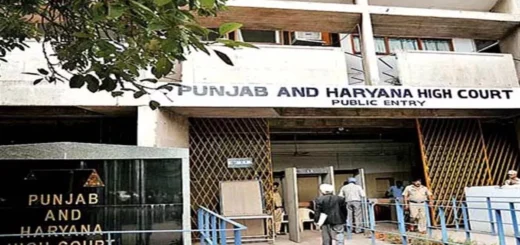Appeal Not Allowed Under Section 19 of the Contempt of Courts Act for Order Rejecting Contempt Application: Supreme Court.

The Supreme Court confirmed that an appeal under section 19 of the Contempt of Courts Act cannot be made against an order that dismisses a contempt application. The Court referenced its earlier ruling in Midnapore Peoples’ Coop. Bank Ltd. v. Chunilal Nanda, (2006) 5 SCC 399, stating that orders related to contempt—whether to start proceedings, not to start them, drop them, or acquit the accused—are not subject to appeal under Section 19 of the Contempt of Courts Act, 1971. However, in certain special cases, they might be challenged under Article 136 of the Constitution.
The Division Bench, consisting of Justice B.R. Gavai and Justice K.V. Viswanathan, noted that due to a specific restriction, the only option for Respondent No.1 was to file a special leave petition against the order of the Single Judge. Additional Solicitor General Aishwarya Bhati represented the Petitioners, while Advocate Sanjeev Kumar Singh represented the Respondents. The ASG argued that the Special Appeal Defective filed by Respondent No.1 in the Allahabad High Court against the Single Judge’s order in the contempt case was not valid. The Single Judge had determined that the appellants did not commit contempt, and based on the earlier decision in Midnapore Peoples’ Coop. Bank Ltd. v. Chunilal Nanda, the appeal was not valid.
The respondents argued that the Single Judge, in handling the contempt application, had addressed the core issues of the case. Therefore, according to paragraph 11, clause V of the ruling in Midnapore Peoples’ Coop. Bank Ltd. and Others, the appeal was valid. The Bench thoroughly examined the legal aspects of appealing under section 19 of the Contempt of Courts Act regarding orders in contempt cases, referencing Midnapore Peoples’ Coop. Bank Ltd. and Others. In paragraph 11, the Supreme Court outlined five situations that affect the ability to appeal. Clause V states that if the High Court makes a decision or gives directions on the merits of a dispute during contempt proceedings, the affected party has options for appeal. This can be done through an intra-court appeal if the order was made by a Single Judge and such an appeal is allowed, or by seeking special leave to appeal under Article 136 of the Constitution of India in other situations.
Additionally, Clause II clarifies that orders refusing to start contempt proceedings, starting them, dropping them, or acquitting the contemnor are not appealable under Section 19 of the CC Act. However, in special cases, they might be challenged under Article 136 of the Constitution. Upon reviewing the Single Judge’s order, the Bench noted that it stated no case for contempt was established, leading to the dismissal of the contempt application by respondent No.1. Therefore, based on clause II of paragraph 11 from the Midnapore Peoples’ Coop. Bank Ltd. and Others ruling, the appeal was not valid, the Bench concluded.
The Court dismissed the argument made by respondent No.1/employee regarding Clause V, stating that the Single Judge did not make any decision on the merits of the case in the order. The Bench noted, “In any case, due to a specific restriction, the only option for Respondent No.1 was to appeal the Single Judge’s order through a special leave petition.” The appeal was granted, and the contested order was annulled. The Court added, “If Respondent No.1 submits a special leave petition to this Court against the Single Judge’s order from January 5, 2022, she will be eligible for the benefits of Section 14 of the Limitation Act, 1963 for the time the case was pending before the Division Bench of the High Court and this Court.”
Cause Title: Deepak Kumar v. Devina Tewari [Neutral Citation: 2024 INSC 925]
Appearance:
Petitioners: Additional Solicitor General of India Aishwarya Bhati, AOR Ankit Goel, Advocates Nikhil Sharma & Harshit Singhal
Respondents: Advocate Sanjeev Kumar Singh, AOR Kumar Dushyant Singh, Advocates Shighra Kumar, Devansh Shekhar, Subasri Jaganathan, Ananttika Singh, AOR Sudipto Sircar









